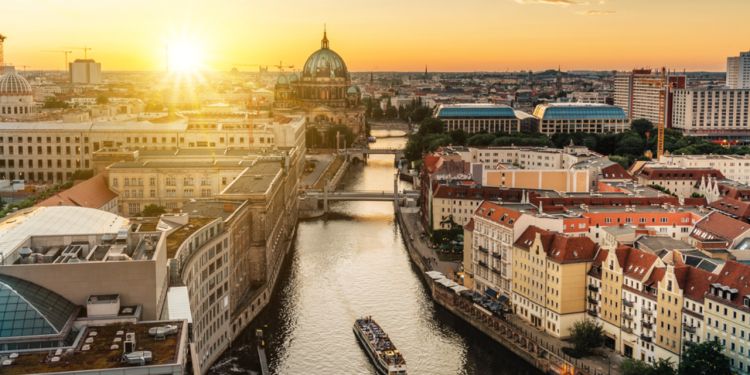Discovering Berlin

Berlin, the capital city of Germany, has a history full of events, all of which have contributed to the formation of the city's current identity. Since its foundation in the 1200s, Berlin has experienced multiple changes and transformations — some linked to the darkest times in modern history. In spite of all the ups and downs, Berlin has succeeded in proving that with hard work and unity, the city can thrive and be exemplary.
Today, Berlin is a metropolis like no other in Central Europe and a dream come true for many expats, who aspire to progress their careers, secure a better quality of life for their families, or be part of an outstanding academic world.
Berlin's background
On 13 August 1961, Berlin was split into two and governed by two opposite political systems — that of communist East Germany on the one hand, and West Germany on the other. The Berlin Wall along Bernauer Strasse, which stood until 9 November 1989, was a symbol of the Cold War and its impact on people who saw their everyday lives changing suddenly in the name of political interests and senseless animosity. Families, friends, and neighbors were forcefully separated from one another and were deprived of their freedom of movement.
On 2 December 1990, the German Bundestag (i.e., the national parliament of the Federal Republic of Germany) was the first unified German parliament to be elected. In 1991, the Parliament and the Federal Government moved from the city of Bonn to Berlin, and in 1999, the German Bundestag settled in the historic and freshly reconstructed Reichstag building to which more buildings have been added ever since, including the Reichstag cupola, one of Berlin's main attractions.
Transportation in Berlin
The best way to get around Berlin is by public transport, which is of excellent quality. There are different types of transportation — from subways (U-Bahn), buses, and trams to streetcars (S-Bahn), ferries, and bikes — depending on your destination and purpose of travel. A single ticket can be valid for all means of transport. However, fares will vary on the basis of your travel zone (i.e., AB, BC, ABC), status (e.g., student, child, disabled person), and the time length of the ticket (e.g., short-haul ticket). Note that disruptions in scheduled departures may occur due to unforeseen reasons or public works, so it's a good idea to keep an eye on announcements regarding your journeys. On weekends, S-Bahn and U-Bahn run for 24 hours, whereas night buses and the Metrotram run every 30 minutes through the night, even on weekdays. Berlin's Central Station (Hauptbahnhof) opened in 2006, becoming the city's hub for all rail traffic, which connects Berlin with other cities and regions through a modern transportation network.
Work and student life in Berlin
Berlin is home to over 3.5 million citizens from all walks of life and parts of the world, having chosen Berlin for its high standard of living, reasonable cost of living, and professional and educational opportunities. So, whether you wish to set up your business in Germany, enjoy the vibrant student life of Berlin, or enter Berlin's labor market, the city offers attractive opportunities for personal and economic development. Some of the most thriving industries in Berlin are the healthcare industry, IT, industrial production, and science. To receive specific job openings and the latest offers, subscribe to Expat.com's jobs in Berlin page or start a conversation at Expat.com's friendly Berlin forum.
Accommodation in Berlin
Like any other vast city, Berlin offers a variety of accommodation options, depending on one's budget, lifestyle, and personal taste. If you are planning to settle long-term in Berlin, we recommend checking our Berlin neighborhoods guide and consulting with the Berlin forum, where seasoned expats can help you make informed decisions depending on your and your family's needs.
Overall, students prefer to live at university or in private student dormitories, which are close to the city's nightlife. On the other hand, professionals are usually concerned with their commuting times and costs, as well as their access to shopping, restaurants, and well-regarded schools, if they have children.








